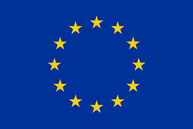About the project
Yersinia pestis, the causative agent of plague, is a flea-borne disease that caused at least three devastating pandemics in the last two millenia. Plague is endemic in wildlife rodents, and the ecological and epidemiological dynamics of the rodent-plague system are the underlying cause of outbreaks in human populations. However, our current understanding of this system is insufficient to mitigate the risk. In this project we will uniquely combine the disciplines of theoretical biology, molecular/evolutionary genetics, epidemiology and ecology to address this important issue.
This project will both significantly strengthen plague research, and would have important corollary impacts on public health and risk assessment. We will use individual-based models of small rodent ecologies through which plague can spread, and observe the changes in the genetic variance of plague. These changes will be abstracted into a Cellular Automata (CA), a modelling formalism that is suitable for simulating large ecological systems. The ecological and epidemiological dynamics of plague within the CA model will be studied in detail and under different hypothesis of plague spread, and compared against the observed genetic variance in plague in Asia.
Financing
This project is financed through a Marie Curie Intra-European Fellowship.
Period
Start: 01.03.2012. End: 31.03.2015
